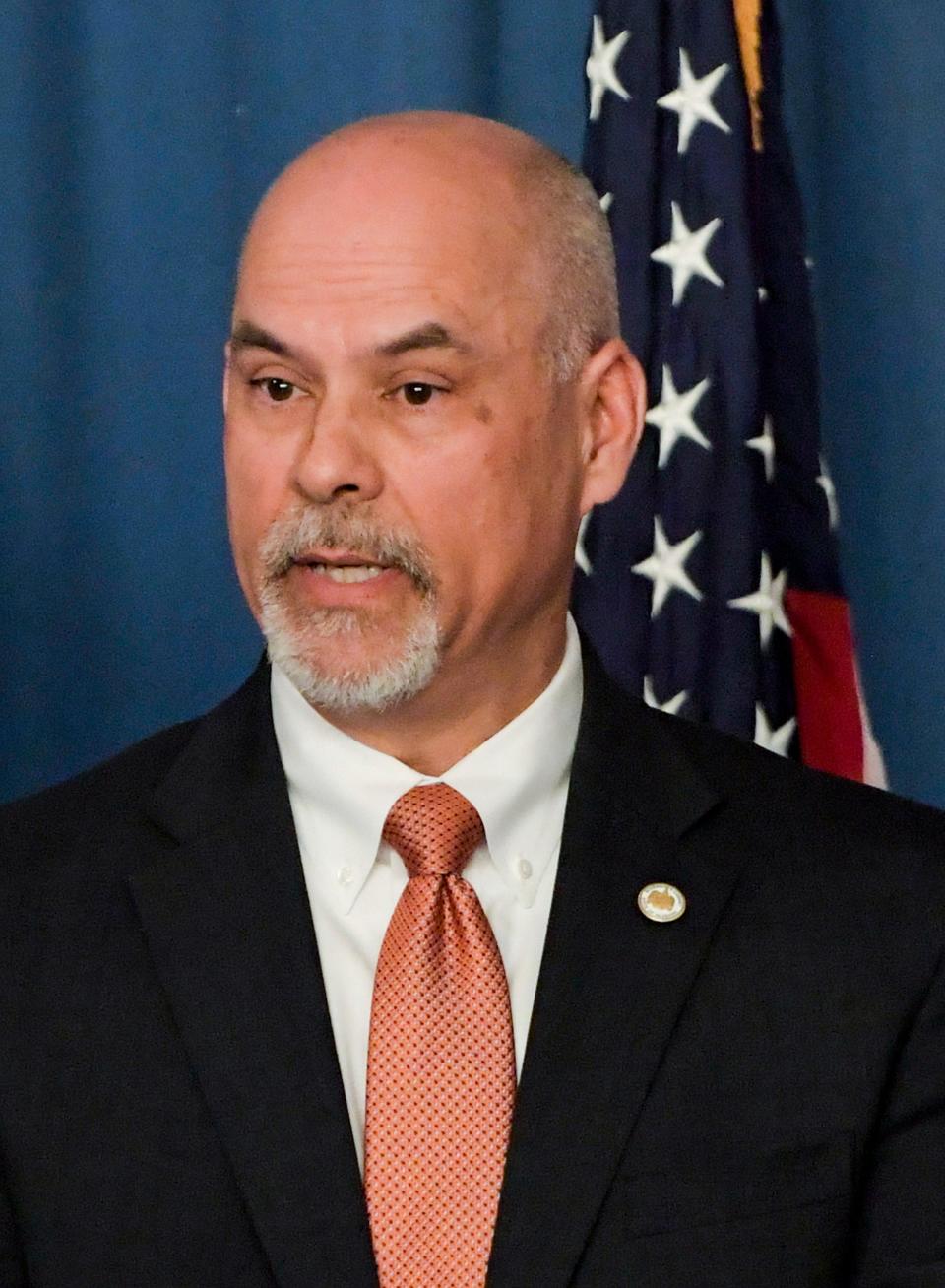Alabama lawmakers quiz corrections leader about prison costs, problems
The head of the state’s prison system faced tough questions from legislators Wednesday as he asked for a $122 million increase in for the next fiscal year.
Democrats and Republicans grilled Alabama Department of Corrections Commissioner John Hamm for over an hour on problems in the system, a $1 billion health care contract, and other matters.
“I am not sure I am satisfied with anything at the Department of Corrections,” said Sen. Greg Albritton, R-Atmore, the chair of the Senate Finance and Taxation General Fund committee, in an interview after the meeting. “But that doesn’t mean that the director and others are not doing their jobs. That doesn’t mean you can get more blood out of that turnip. That means, I believe, that there are a lot of questions going on, there are a lot of eyes on this, and the state is doing its best to find a good path that we can solve some of these problems.”

Alabama’s prisons have faced violence and overcrowding for years. Corrections has also struggled to staff the prisons, staffing prisons, contributing to the violence. The state is facing federal lawsuits over health care and general conditions in the system, which could lead to the prison system falling into receivership. That could lead any number of court-ordered remedies, from mandated budget increases to release of prisoners.
Hamm’s $122 million request would go to infrastructure and health care needs in the state prisons, as well as costs associated with ongoing litigation.
Staffing remains the major problem for the department. According to Hamm’s presentation, the department needs to hire 688 security positions and another 264 administration positions.
“If y’all have any ideas how we can hire correctional officers, we are certainly open to any suggestions,” Hamm said.
Albritton had a couple of suggestions.
“Safe working conditions is number one,” Albritton said. “Nobody wants to go to work knowing there is a high probability they are going to be injured or killed. That is a very real possibility.”
Albritton also said there needs to be additional training and increase the pay so the salaries are competitive.
To address that, DOC is offering additional pay for staffers to work in certain facilities and has hired consulting firms to recruit and retain candidates. The commissioner also said he is wants to contract with private security posts that do not have contact with inmates.
Hamm said he needs $90 million to adhere to court orders on treatment of incarcerated people.
The commissioner said more than half of that outlay, almost $50 million will be used for upgrades to bring prisons like Limestone Correctional Facility in Harvest and Donaldson Correctional Facility in Bessemer in compliance with the American with Disabilities Act. Another $37 million is needed to tend to the medical needs of people who are incarcerated.
Corrections awarded a $1 billion health care contract to YesCare, a Tennessee-based company that provides health care for inmates. But at a Contract Review Committee meeting earlier this month, Mary-Coleman Roberts, the acting general counsel for the department, and Rep. Chris England, D-Tuscaloosa, argued over the presence of Bill Lunsford, an attorney representing the state in an ongoing lawsuit, on a YesCare advisory board.
Other legislators questioned Hamm about the contract on Wednesday.
“It appears to me that you chose a financially distressed company to provide the services,” said Rep. Laura Hall, D-Huntsville. “Are you telling me the other companies are pretty much in the same position?”
Hamm said he is unaware of the financial conditions of the other companies who submitted bids, but that YesCare had to provide a bond. To do that, the bonding company had to review the financials of the company.
Hamm also told lawmakers that $32 million of his $122 million requested increase would go to litigation and addressing potential problems in the prisons. The commissioner is seeking $5 million for attorney fees; $6 million for camera and equipment for security, almost $7.4 million in food expenses and kitchen/laundry equipment, and $13 million for “cell phone interdiction systems” for three of the facilities.
The commissioner called cell phones and contraband “our main problem” outside staffing. Hamm said cell phones are replaced almost as quickly as officers confiscate them.
“The majority of the contraband comes out over the fence,” he said. “We have been putting stuff out on social media about the arrests we have been making on this because we are very active on it, but it doesn’t seem to get traction.”
Rep. Brett Easterbrook, R-Fruitdale, questioned Hamm on the issue.
“You can’t see them coming with thermal technology or anything like that?” he said. “We use it for deer hunting. I can see them from 400 yards before it gets that close.”
Albritton said he was concerned about the pressures that Corrections’ budget request put on the General Fund.
“Between inflation and other matters, the increase in the demands on the General fund is very significant,” he said. “Part of what we are doing today is so the legislature can have an idea of where we are headed with funds from the state and how we are going to allocate.”
Alabama Reflector is part of States Newsroom, an independent nonprofit website covering politics and policy in state capitals around the nation.
This article originally appeared on Montgomery Advertiser: Alabama lawmakers quiz corrections leader about prison costs, problems

